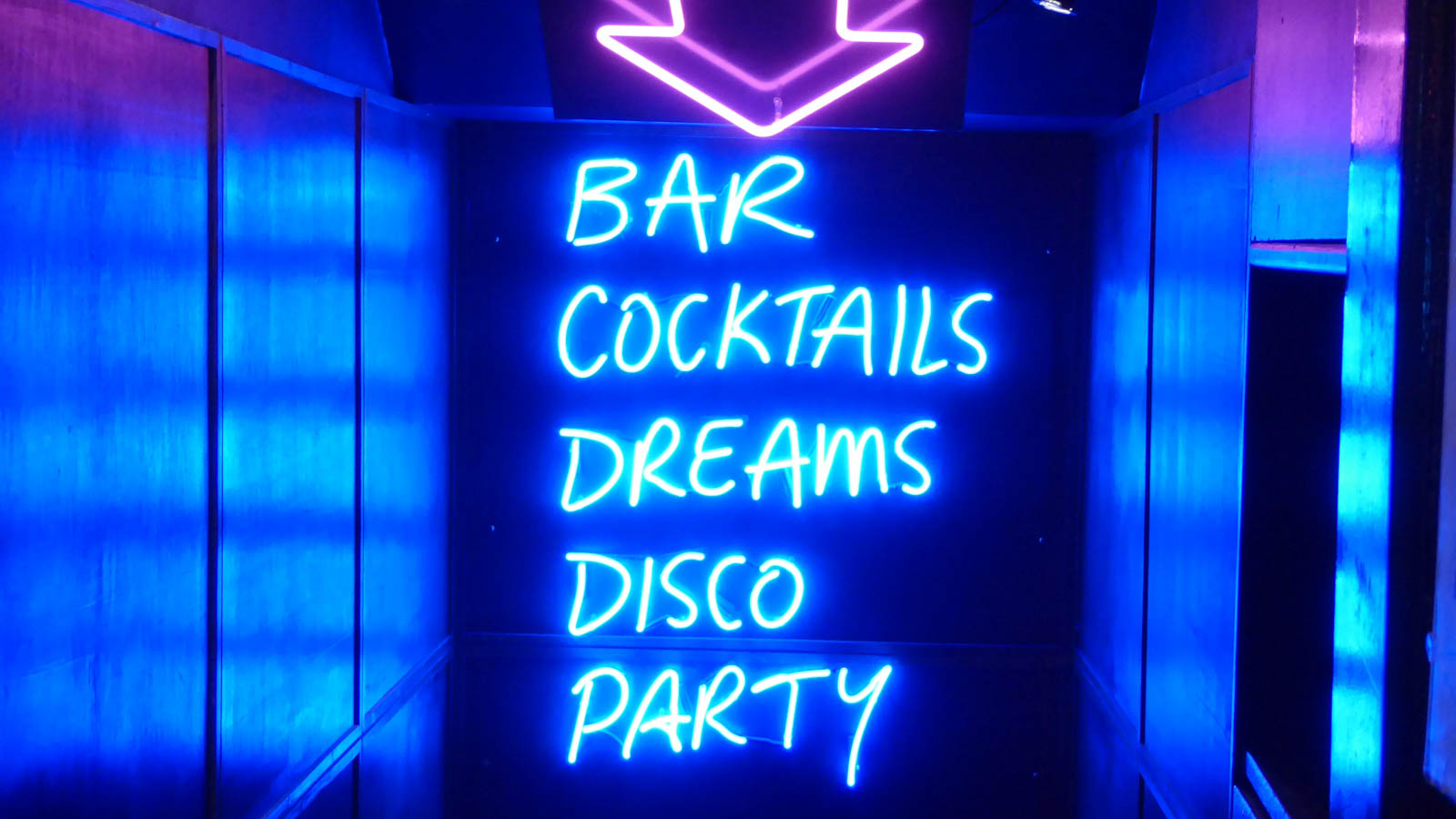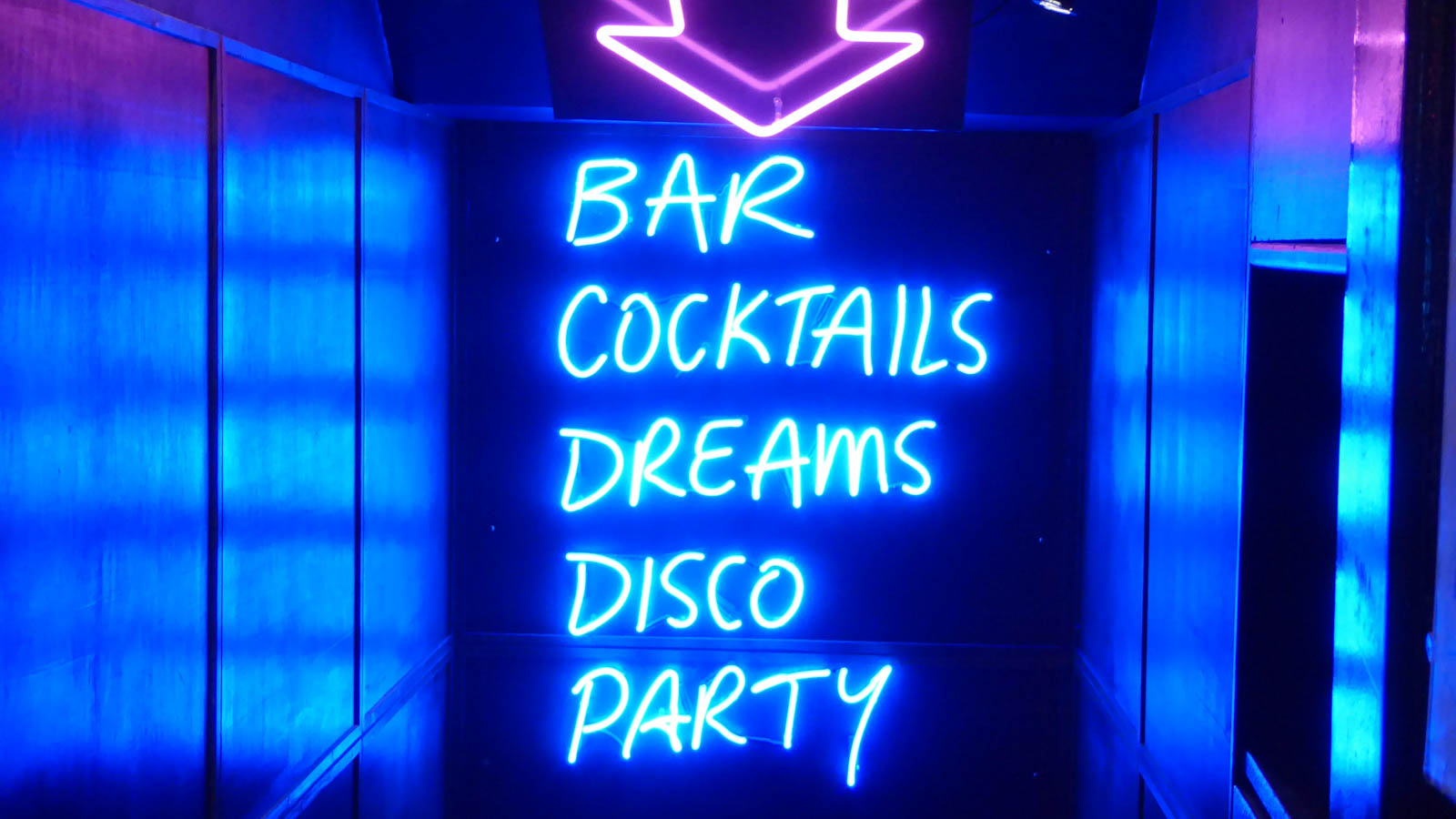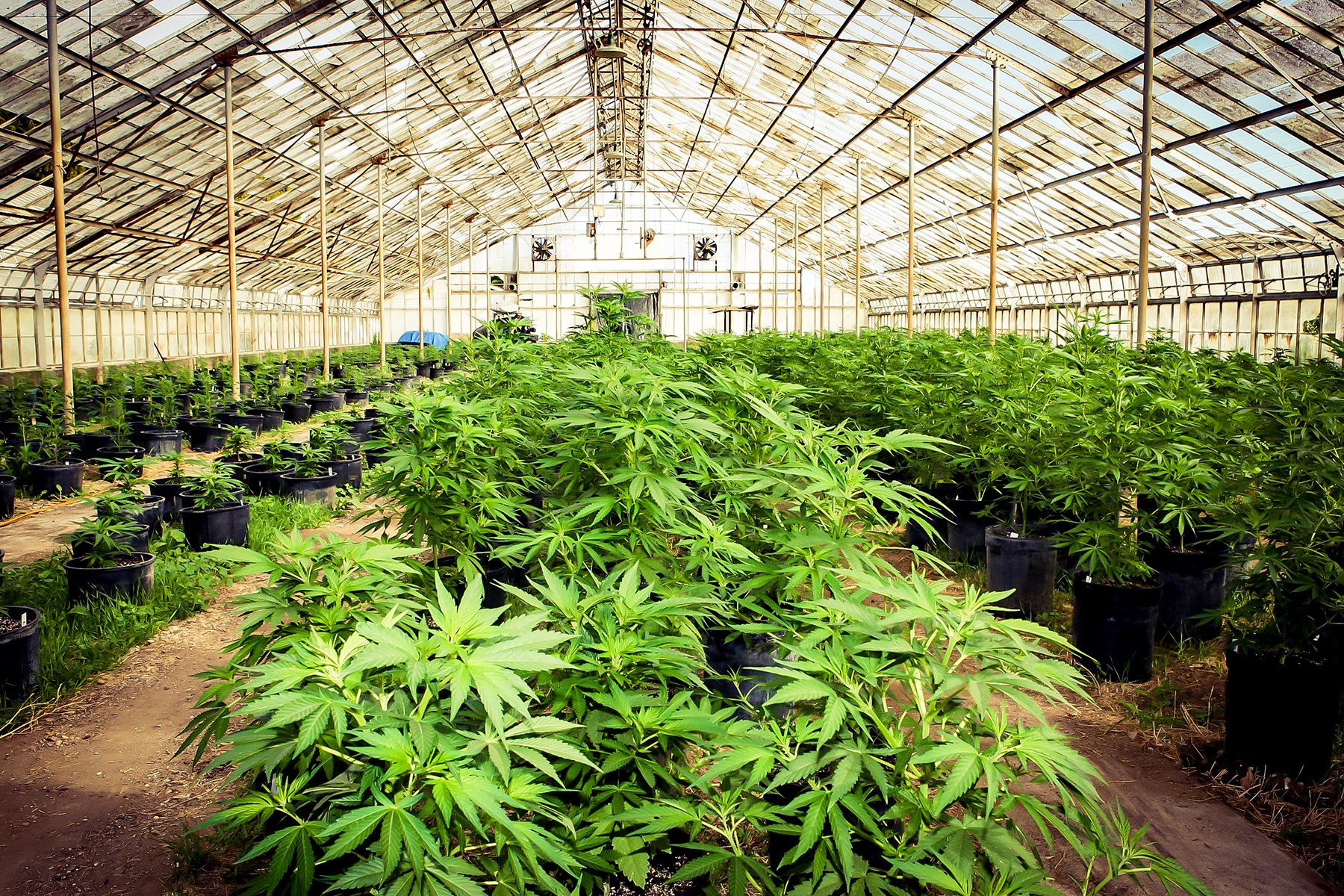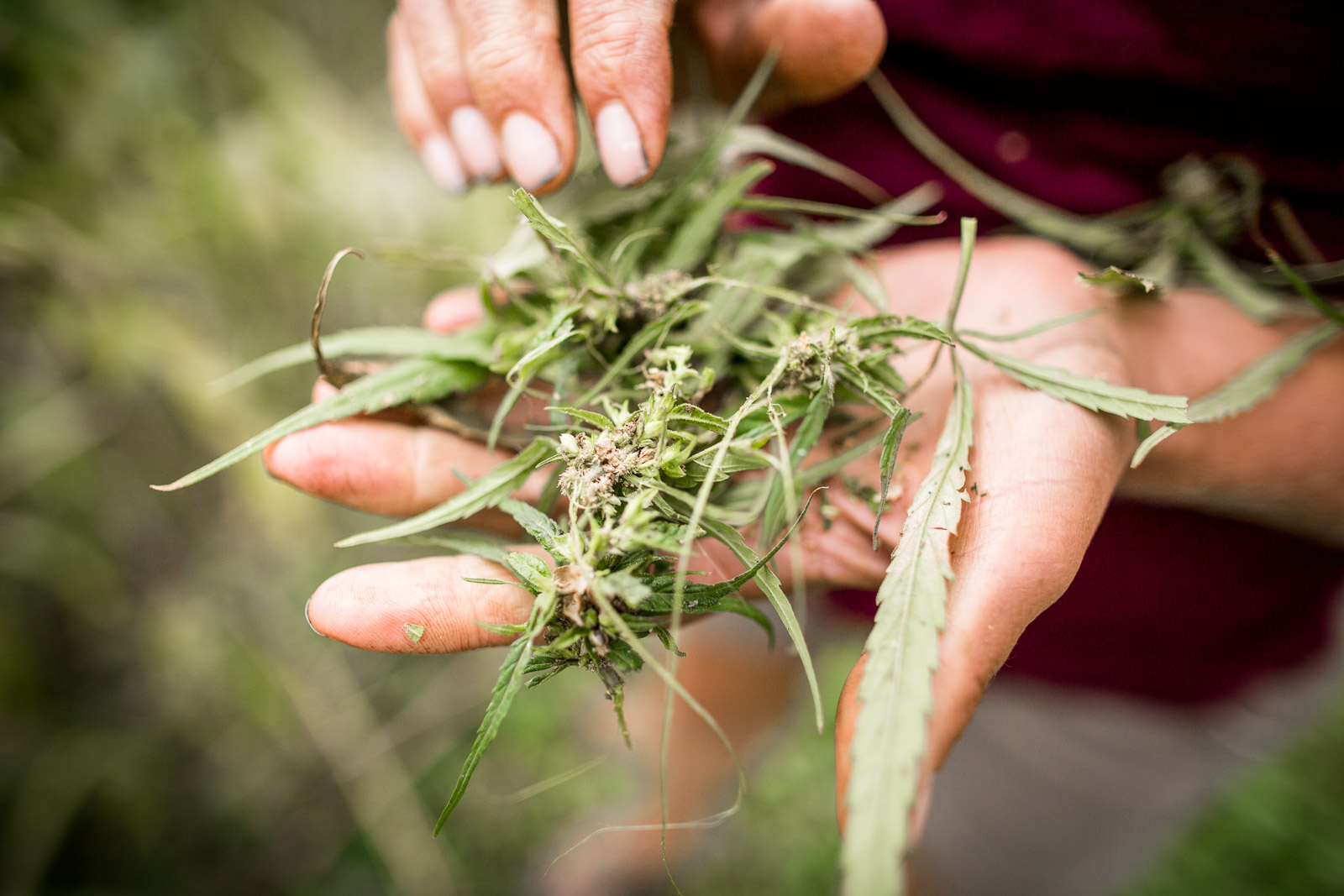
In Las Vegas, there’s a trade show for almost anything — and that includes the business of playing and partying around alcohol.
The Nightclub & Bar Show is akin to a Consumer Electronics Show (CES) of booze. Going strong for more than three decades, the annual event took place March 25-27 at the Las Vegas Convention Center and brought together innovators, experts, and entrepreneurs in anything and everything related to drinks, nightlife, and hospitality.
In recent years, the presence of the cannabis industry has made its way into the trade show. In 2019, the trade show saw top cannabis and alcohol industry professionals weighing on current trends and products competing to be the next big thing. Here were the eight biggest takeaways:
1. CBD and THC Cocktails
As laws, patterns, and behaviors sort themselves out, bartenders are experimenting with cannabidiol (CBD) — and to a less common extent, THC — into their creations.
“I think we’re still trying to define how cannabis cocktails work,” said Marc Tiberia, national account manager for Infinium Spirits. “We definitely see CBD as a trend at this moment. There’s a tremendous amount of white space, and everybody is trying to figure out their role in that space.”
While CBD was widely touted for its perceived health benefits at the Nightclub & Bar Show, some were hesitant about the question marks and consequences of mixing alcohol and THC in the same vessel.
“It’s an interesting quandary. I’m not a huge proponent of it,” said Tripp Keber, co-founder and former CEO of Dixie Brands. “Drinking alcohol or smoking cannabis — if you add them together, it’s a party. So you want to be very careful with all things in moderation.”
The legal cannabis industry is still relatively new, so statistics and information about mixing THC with alcohol are relatively slim. At this point, most of the evidence is anecdotal.
“When I consume cannabis and drinking, it balances me out,” said Nickole Ross, chief operating officer of Noohra Labs, the recipient of a provisional license to manufacturer medicinal marijuana in Ohio. “I don’t feel overly tipsy, I don’t feel overly high. But that’s my body. That’s my level of consumption.”
2. THC with a Twist
Mixing THC with alcohol is easier said than done. Some are turning to tinctures to enhance their drinks, but the results are mixed at best.
“For me, I’ve tried a lot of tinctures and I’ve had yet to come across one that has an impact,” Andrea Drummer, owner of Elevation VIP Cooperative, which prepares marijuana-infused foods, and a chef who understands infusions. “But If you’re at home and having a cup of coffee, tea or smoothie, (it may be) great to add to your day-to-day regimen.”
As cannabis gains broader cultural acceptance, its key cannabinoids THC and cannabidiol could be key ingredients to enliven cocktails. (Photo by Helena Yankovska/Unsplash)
Infusing either food or drinks typically requires decarboxylation — the process of using heat to activate the psychoactive properties of cannabis. Kalvara may offer a solution. The product releases a 10-milligram dose of THC from a cap when twisted on top of a 2-ounce bottle. It’s ready to drink when mixed with water or any other liquid.
“This an actual water-soluble product,” said Ross, who has the exclusive distribution rights to Kalvara in Ohio. “It’s changing the customer’s perspective of how they can consume cannabis. If you choose to add it to wine, that’s at your discretion. You can add it to cocktails. You can put it into any type of drink.”
3. CBD, Drop by Drop
Industry Hemp is looking to make CBD cocktail infusions as convenient — and profitable — as possible. The San Diego-based company is marketing a bottle with a thousand drops of liquid CBD with a squeeze-dropper top. Each drop that comes out contains 1 milligram of CBD.
“For a bar or restaurant, that makes a lot of sense,” said CEO and co-founder Billy Peuplie. “It’s fast and easy to use. They can track it and charge accordingly.”
The product comes in a natural cannabis flavor with a hemp oil base or an unflavored version with an MCT oil base. The company is planning to release more flavors down the line, including lemon-lime, cherry, lavender, jalapeño, and others based on demand from mixologists. The bottles sell in three-packs of $224 on a wholesale basis, which breaks down to about $75 per bottle. That may seem pricey, but there is plenty of potential in the profit margins.
“If a bar charges $5 per 10 milligrams, there are a hundred servings in the bottle,” Peuplie said. “So they’ll be looking at grossing $500 per $75 bottle.”
Anything is fair game — a beer, Jack & Coke, or even a salad — for a bartender or server to say, “Would you like some CBD with that?” It’s all about upselling and increasing the check total while providing something intriguing and useful for customers.
Peuplie said the cannabis-flavored drops are best suited for “a frothy drink like an amaretto sour or something that’s shaken with egg white. It’s really cool to drip the drops on there, because people can really see it, they can get the aroma from it. They can get the taste from it.”
4. Canna-Tonics
A new line of mixers is giving bartenders a quick and easy way to serve CBD in cocktails and mocktails. Tempters Tonics come in tonic water, club soda, grapefruit soda, and ginger ale flavors. Each serving has 15 milligrams of water-soluble full-spectrum CBD.
“You can have a cocktail and by the time you finish it, you feel the additive effect of CBD,” said JB Woodworth, president of Cüre, the company behind the venture.
The plan is to initially market the products to high-end cocktail bars, but eventually bring them to retail. Woodworth compares Tempters Tonics to Fever Tree, a company that brought a premium, artisanal image to mixers. Only natural ingredients are used and an effort is made to tone down the raw cannabis taste.
Just as there are myriad ways to consume cannabis, soon THC- or CBD-infused products could be part of a mixologist’s arsenal. (Photo by Bobby Rodriguezz/Unsplash)
“Adding it to any kind of beverage, you’re battling against flavors sometimes described as barnyard or grassy,” said Cüre Hospitality Division President Evan Freeman. “We’re trying to take as much of the flavor and the bitterness out of it, so it can be seamlessly be used in a lot of things and have versatility.”
According to Freeman, the mixers work best in highball cocktails like a gin and tonic, paloma, or dark and stormy. Plans are in the works for an infused simple syrup and bitters, although “carbonated drinks are a great delivery system” for the CBD, Freeman said.
5. Gazing into the Constellation
A big topic of discussion at the Nightclub & Bar Show was the investment of $4 billion by spirits, beer, and wine producer Constellation Brands in Canopy Growth, a Canadian company that was the first cannabis business in North America to be publicly traded. Many see the move as evidence there’s room for both alcohol and cannabis to co-exist and thrive, but not everyone has caught on yet.
“A lot of people in alcohol and liquor sales are seeing cannabis as a threat instead of an opportunity,” said Tiberia. “When we look at the three states that have had cannabis legal for the longest amount of time — Oregon, Washington, and Colorado — sales are still trending upward in alcohol. It’s not like cannabis is taking from that specifically.”
6. Look out for Licensing
In what could be a sign of things to come, Fireball licensed out its brand to another company for THC gummies that taste like the popular whiskey’s signature cinnamon flavor.
“They’re hitting pool parties really hard and bringing along a more energetic, younger vibe to the industry, but piggybacking off an existing alcohol brand,” said Top Shelf Budtending CEO Andrew Mieure. “It’s a fully licensed Fireball product, but it’s in the cannabis space.”
Cannabis-infused cocktails are poised to be a major trend, many believe at the Nightlife & Bar Show expo for the alcohol, nightlife, and hospitality industries. (Photo by Jia Jia Shum/Unsplash)
Will there be Coca-Cola or Budweiser gummies someday? That remains to be seen, but it’s clear that alcohol and beverage brands can tap into a new consumer base with the edible market.
“Cocktails and milkshakes are going to be offered (as infusions),” Tiberia said. “But the largest opportunity is in edibles. Fireball could have done a cannabis-infused Fireball (spirit), but they chose to do it in the format of an edible. I think that’s genius because it’s the largest growth sector.”
7. Hopping over Hurdles
The legalization of industrial hemp in the 2018 Farm Bill was a welcome sign of progress, but it also triggered crackdowns on CBD in New York and other parts of the country. When the issue was discussed, most at the Nightclub & Bar Show seemed to view the actions as a temporary setback.
“I think this is just a shining example of the regulatory clusterfuck — pardon my French,” said Rachel Burkons, co-founder of Altered Plates, a company that specializes in cannabis dining and hospitality. “Because the FDA [Food and Drug Administration] has approved Epidiolex, which is an anti-seizure medication owned by GW Pharmaceuticals, the FDA considers cannabis and CBD to be medicine. That’s where that problematic loophole is happening, because the FDA says you can’t be both medicine and food.”
“That’s interesting, because food is medicine,” Elevation VIP owner Drummer said in response. “With New York, they cut the program because there isn’t any regulation. So you have a lot of placebos on the market, and you don’t really know if (a CBD product) is doing the thing it’s supposed to do.”
Others were more optimistic, saying that Drug Enforcement Administration (DEA) enforcement officials already have too much to worry about outside the cannabis space.
“I think the DEA, for the most part, is chasing real narco-traffickers,” Keber said. “People who are selling heroin, people who are selling crystal meth, potentially even cocaine, because the cartels have all but abandoned cannabis. They just cannot do it as well and as profitable as us (in the legal industry). So they’ve moved on to much more highly addictive platforms.”
8. Will Consumption Lounges Become the New Neighborhood Bar?
As states around the U.S. continue to legalize adult-use cannabis sales, restrictions and limitations on public consumption remain in place. One of the big stories of the near future is how consumption lounges will develop and evolve. If they become the bars of tomorrow, the cannabis industry will only become more influential when the Nightclub & Bar Show returns to Las Vegas in the years ahead.
“Just like it’s nice to enjoy a glass of wine or a glass of whiskey by yourself, it’s actually most nice when it’s a communal experience — when you’re with your friends,” said Lighthouse Strategies President Victor Jerez. “Cannabis is a social experience.”















